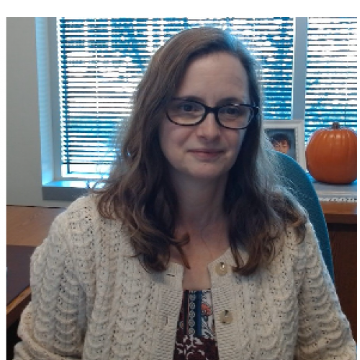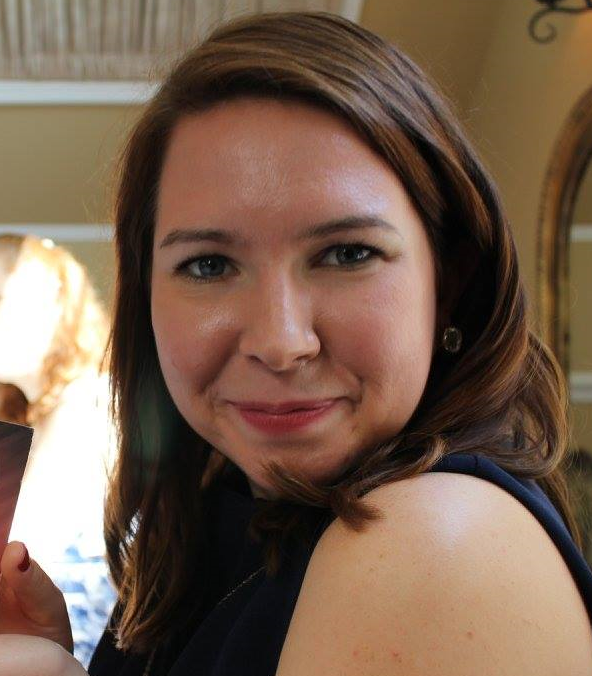Managing Vulnerable Adults on RE
We don't at present but have been asked by someone's next of kin not to contact them. We could just mark them as "No contact", but I'm wondering if anyone does anything else that might be a bit better.
Matt
Comments
-
Have you considered using a Solicit Code? Otherwise, I'd probably use an Attribute. I put Solicit Codes in as Attributes, so I would likely be inclined to use my Solicit Code Attributes, possibly in addition to a Note with any further information. Depending on how many constituents you're talking about and whether you have need of any detail beyond essentially a DNS instruction. Notes would allow you to copy-and-paste emails from next of kin or other staff, or type in instructions from a phone call or other discovery of this information and then the Solicit Code should prevent you from contacting them.3
-
I change their solicit code and then in Notes have a Note Type of "Contact Information", put "Solicit Code Change" in the Description and the explanation in the Notes. But, if you think you may need to pull a list of vulnerable adults, then the attribute might be a better option.Matthew Page:
Does anyone here record, process, etc vulnerable adults on their RE? I'm thinking of things like having an attribute to indicate someone is, say, a dementia sufferer. Or something similar.
We don't at present but have been asked by someone's next of kin not to contact them. We could just mark them as "No contact", but I'm wondering if anyone does anything else that might be a bit better.
Matt2 -
Matthew Page:
Does anyone here record, process, etc vulnerable adults on their RE? I'm thinking of things like having an attribute to indicate someone is, say, a dementia sufferer. Or something similar.
We don't at present but have been asked by someone's next of kin not to contact them. We could just mark them as "No contact", but I'm wondering if anyone does anything else that might be a bit better.
Matt
We will give them a solicit code of "Do Not Mail" and add a note of a corresponding type with the reason. We also have the Prospect Module, so we give them a Prospect Status of "Disqualified" so they're not assigned to a gift officer in the future.3 -
Like Shani, we apply a "Do Not Solicit" or "Do Not Mail" solicit code, then add Notes explaining their health situation and/or copying the family member's email correspondence. In cases where we've known the donor for a long time, I'll usually send a handwritten note expressing to the family our gratitude for their past support and our condolences/well-wishes for them in the future. But, to echo LaDonna, if your organization offers service programs for disabled/handicapped persons, an Attribute would better allow you to pull them for a group listing.
2 -
Matthew Page:
Does anyone here record, process, etc vulnerable adults on their RE? I'm thinking of things like having an attribute to indicate someone is, say, a dementia sufferer. Or something similar.
We don't at present but have been asked by someone's next of kin not to contact them. We could just mark them as "No contact", but I'm wondering if anyone does anything else that might be a bit better.
MattI would suggest using a solicit code as well; in addition you need to use extreme caution when referencing any medical conditions, due to privacy issues.
2 -
Thanks for all your thoughts on this everyone. Much appreciated.
Matt1 -
Matthew Page:
Thanks for all your thoughts on this everyone. Much appreciated.
MattDoes anyone have any concerns about documenting this type of information in your database? Knowing that at any point, your database records could be subpoenaed or request by the prospect? We are very cautious about adding any medical related information into our database but recognizing the fact that gift officers need to be made aware. Just hoping for everyone's thoughts on this.
Tracy
1 -
Does anyone have any concerns about documenting this type of information in your database? Knowing that at any point, your database records could be subpoenaed or request by the prospect? We are very cautious about adding any medical related information into our database but recognizing the fact that gift officers need to be made aware. Just hoping for everyone's thoughts on this.
From a UK perspective:
Be accurate, be neutral, be succinct.
If you faithfully copy in the necessary text of a correxpondence from a responsible family member without editing such as might change the meaning, then you've not done anything wrong, merely acted in good faith. You obviously need to record the contact details of the responsible person, so that any future query or change can be handled.
Don't add any opinion; just stick to the facts.
And never impute a motive.
3 -
Does anyone have any concerns about documenting this type of information in your database? Knowing that at any point, your database records could be subpoenaed or request by the prospect?
I think as long as you keep your Notes impartial and/or quote directly from the donor family's correspondence, then it is safe to leave in. For instance, I do not think a donor would be offended if I wrote: "Donor requested prayers for her husband who has Alzheimer's", or "Donor writes, 'I will be moving to hospice, so will not be able to donate anymore. Please remove me from your mailing list.' " We have these periodically.
2 -
Matthew Page:
Does anyone here record, process, etc vulnerable adults on their RE? I'm thinking of things like having an attribute to indicate someone is, say, a dementia sufferer. Or something similar.
We don't at present but have been asked by someone's next of kin not to contact them. We could just mark them as "No contact", but I'm wondering if anyone does anything else that might be a bit better.
MattI feel that this would be the perfect example to bring up in the Database Administration 1 class' section on Attributes. A vulnerable label has no place to live on a record besides the attributes tab. Your subsequent decisions on how to proceed with that specific person (how and when to solicit, which events they can safely attend, etc.) would go in whichever appropriate place that type of information is stored in your system, such as solicit codes or other specific attributes. To answer the "why" by providing futher documentation, I always rely on Notes.
Regarding the question of appropriate documentation, I believe the above notes about direct copy and pasting text to be true. Also, if you needed to, you could come up with some sort of unobvious code to use in your attributes ("green light" = x, "yellow light" = y...), and document it clearly in your policys and procedures manual.
1 -
Thanks everyone for your continuing input on this one.
Tracy Forkin:
Does anyone have any concerns about documenting this type of information in your database? Knowing that at any point, your database records could be subpoenaed or request by the prospect? We are very cautious about adding any medical related information into our database but recognizing the fact that gift officers need to be made aware. Just hoping for everyone's thoughts on this.
Tracy
I'm trying to educate my colleagues on this. If someone makes a subject access request we would have to reveal everything that we've written about them, so like Philip says it has to be as neutral as possible.Phillip Bicknell:
From a UK perspective:Be accurate, be neutral, be succinct. If you faithfully copy in the necessary text of a correxpondence from a responsible family member without editing such as might change the meaning, then you've not done anything wrong, merely acted in good faith. You obviously need to record the contact details of the responsible person, so that any future query or change can be handled. Don't add any opinion; just stick to the facts. And never impute a motive.
I think part of the challenge is knowing how to future proof the information. So I get what Andrea is saying, but at the same time I can foresee various situations in the future where I might need to be able to loate all the people who we have been notified should be vulnerable in one place. I'm a bit behind the curve on this on, but the issues of vulnerable adults is on the agenda for change at the moment and I can imagine having to have a list somewhere of all your vulnerable adults you have contact with might become a requirement at some point in the future.
Matt
1 -
Matthew Page:
Thanks everyone for your continuing input on this one.Tracy Forkin:
Does anyone have any concerns about documenting this type of information in your database? Knowing that at any point, your database records could be subpoenaed or request by the prospect? We are very cautious about adding any medical related information into our database but recognizing the fact that gift officers need to be made aware. Just hoping for everyone's thoughts on this.
Tracy
I'm trying to educate my colleagues on this. If someone makes a subject access request we would have to reveal everything that we've written about them, so like Philip says it has to be as neutral as possible.Phillip Bicknell:
From a UK perspective:Be accurate, be neutral, be succinct. If you faithfully copy in the necessary text of a correxpondence from a responsible family member without editing such as might change the meaning, then you've not done anything wrong, merely acted in good faith. You obviously need to record the contact details of the responsible person, so that any future query or change can be handled. Don't add any opinion; just stick to the facts. And never impute a motive.
I think part of the challenge is knowing how to future proof the information. So I get what Andrea is saying, but at the same time I can foresee various situations in the future where I might need to be able to loate all the people who we have been notified should be vulnerable in one place. I'm a bit behind the curve on this on, but the issues of vulnerable adults is on the agenda for change at the moment and I can imagine having to have a list somewhere of all your vulnerable adults you have contact with might become a requirement at some point in the future.
Matt
Does anyone has a policy or procedural document on how this sensitive information is documented? One of my colleagues worked for a hospital so everything was focused around HIPPA. I understand the value in having much of this information but do have concerns about it being documented in the database. This is such a sensitive subject. We need this information to understand the relationship but don't want a breech to damage that same relationship.
Tracy
1
Categories
- All Categories
- Shannon parent
- shannon 2
- shannon 1
- 21 Advocacy DC Users Group
- 14 BBCRM PAG Discussions
- 89 High Education Program Advisory Group (HE PAG)
- 28 Luminate CRM DC Users Group
- 8 DC Luminate CRM Users Group
- Luminate PAG
- 5.9K Blackbaud Altru®
- 58 Blackbaud Award Management™ and Blackbaud Stewardship Management™
- 409 bbcon®
- 2.1K Blackbaud CRM™ and Blackbaud Internet Solutions™
- donorCentrics®
- 1.1K Blackbaud eTapestry®
- 2.8K Blackbaud Financial Edge NXT®
- 1.1K Blackbaud Grantmaking™
- 527 Education Management Solutions for Higher Education
- 1 JustGiving® from Blackbaud®
- 4.6K Education Management Solutions for K-12 Schools
- Blackbaud Luminate Online & Blackbaud TeamRaiser
- 16.4K Blackbaud Raiser's Edge NXT®
- 4.1K SKY Developer
- 547 ResearchPoint™
- 151 Blackbaud Tuition Management™
- 1 YourCause® from Blackbaud®
- 61 everydayhero
- 3 Campaign Ideas
- 58 General Discussion
- 115 Blackbaud ID
- 87 K-12 Blackbaud ID
- 6 Admin Console
- 949 Organizational Best Practices
- 353 The Tap (Just for Fun)
- 235 Blackbaud Community Feedback Forum
- 55 Admissions Event Management EAP
- 18 MobilePay Terminal + BBID Canada EAP
- 36 EAP for New Email Campaigns Experience in Blackbaud Luminate Online®
- 109 EAP for 360 Student Profile in Blackbaud Student Information System
- 41 EAP for Assessment Builder in Blackbaud Learning Management System™
- 9 Technical Preview for SKY API for Blackbaud CRM™ and Blackbaud Altru®
- 55 Community Advisory Group
- 46 Blackbaud Community Ideas
- 26 Blackbaud Community Challenges
- 7 Security Testing Forum
- 1.1K ARCHIVED FORUMS | Inactive and/or Completed EAPs
- 3 Blackbaud Staff Discussions
- 7.7K ARCHIVED FORUM CATEGORY [ID 304]
- 1 Blackbaud Partners Discussions
- 1 Blackbaud Giving Search™
- 35 EAP Student Assignment Details and Assignment Center
- 39 EAP Core - Roles and Tasks
- 59 Blackbaud Community All-Stars Discussions
- 20 Blackbaud Raiser's Edge NXT® Online Giving EAP
- Diocesan Blackbaud Raiser’s Edge NXT® User’s Group
- 2 Blackbaud Consultant’s Community
- 43 End of Term Grade Entry EAP
- 92 EAP for Query in Blackbaud Raiser's Edge NXT®
- 38 Standard Reports for Blackbaud Raiser's Edge NXT® EAP
- 12 Payments Assistant for Blackbaud Financial Edge NXT® EAP
- 6 Ask an All Star (Austen Brown)
- 8 Ask an All-Star Alex Wong (Blackbaud Raiser's Edge NXT®)
- 1 Ask an All-Star Alex Wong (Blackbaud Financial Edge NXT®)
- 6 Ask an All-Star (Christine Robertson)
- 21 Ask an Expert (Anthony Gallo)
- Blackbaud Francophone Group
- 22 Ask an Expert (David Springer)
- 4 Raiser's Edge NXT PowerUp Challenge #1 (Query)
- 6 Ask an All-Star Sunshine Reinken Watson and Carlene Johnson
- 4 Raiser's Edge NXT PowerUp Challenge: Events
- 14 Ask an All-Star (Elizabeth Johnson)
- 7 Ask an Expert (Stephen Churchill)
- 2025 ARCHIVED FORUM POSTS
- 322 ARCHIVED | Financial Edge® Tips and Tricks
- 164 ARCHIVED | Raiser's Edge® Blog
- 300 ARCHIVED | Raiser's Edge® Blog
- 441 ARCHIVED | Blackbaud Altru® Tips and Tricks
- 66 ARCHIVED | Blackbaud NetCommunity™ Blog
- 211 ARCHIVED | Blackbaud Target Analytics® Tips and Tricks
- 47 Blackbaud CRM Higher Ed Product Advisory Group (HE PAG)
- Luminate CRM DC Users Group
- 225 ARCHIVED | Blackbaud eTapestry® Tips and Tricks
- 1 Blackbaud eTapestry® Know How Blog
- 19 Blackbaud CRM Product Advisory Group (BBCRM PAG)
- 1 Blackbaud K-12 Education Solutions™ Blog
- 280 ARCHIVED | Mixed Community Announcements
- 3 ARCHIVED | Blackbaud Corporations™ & Blackbaud Foundations™ Hosting Status
- 1 npEngage
- 24 ARCHIVED | K-12 Announcements
- 15 ARCHIVED | FIMS Host*Net Hosting Status
- 23 ARCHIVED | Blackbaud Outcomes & Online Applications (IGAM) Hosting Status
- 22 ARCHIVED | Blackbaud DonorCentral Hosting Status
- 14 ARCHIVED | Blackbaud Grantmaking™ UK Hosting Status
- 117 ARCHIVED | Blackbaud CRM™ and Blackbaud Internet Solutions™ Announcements
- 50 Blackbaud NetCommunity™ Blog
- 169 ARCHIVED | Blackbaud Grantmaking™ Tips and Tricks
- Advocacy DC Users Group
- 718 Community News
- Blackbaud Altru® Hosting Status
- 104 ARCHIVED | Member Spotlight
- 145 ARCHIVED | Hosting Blog
- 149 JustGiving® from Blackbaud® Blog
- 97 ARCHIVED | bbcon® Blogs
- 19 ARCHIVED | Blackbaud Luminate CRM™ Announcements
- 161 Luminate Advocacy News
- 187 Organizational Best Practices Blog
- 67 everydayhero Blog
- 52 Blackbaud SKY® Reporting Announcements
- 17 ARCHIVED | Blackbaud SKY® Reporting for K-12 Announcements
- 3 Luminate Online Product Advisory Group (LO PAG)
- 81 ARCHIVED | JustGiving® from Blackbaud® Tips and Tricks
- 1 ARCHIVED | K-12 Conference Blog
- Blackbaud Church Management™ Announcements
- ARCHIVED | Blackbaud Award Management™ and Blackbaud Stewardship Management™ Announcements
- 1 Blackbaud Peer-to-Peer Fundraising™, Powered by JustGiving® Blogs
- 39 Tips, Tricks, and Timesavers!
- 56 Blackbaud Church Management™ Resources
- 154 Blackbaud Church Management™ Announcements
- 1 ARCHIVED | Blackbaud Church Management™ Tips and Tricks
- 11 ARCHIVED | Blackbaud Higher Education Solutions™ Announcements
- 7 ARCHIVED | Blackbaud Guided Fundraising™ Blog
- 2 Blackbaud Fundraiser Performance Management™ Blog
- 9 Foundations Events and Content
- 14 ARCHIVED | Blog Posts
- 2 ARCHIVED | Blackbaud FIMS™ Announcement and Tips
- 59 Blackbaud Partner Announcements
- 10 ARCHIVED | Blackbaud Impact Edge™ EAP Blogs
- 1 Community Help Blogs
- Diocesan Blackbaud Raiser’s Edge NXT® Users' Group
- Blackbaud Consultant’s Community
- Blackbaud Francophone Group
- 1 BLOG ARCHIVE CATEGORY
- Blackbaud Community™ Discussions
- 8.3K Blackbaud Luminate Online® & Blackbaud TeamRaiser® Discussions
- 5.7K Jobs Board













